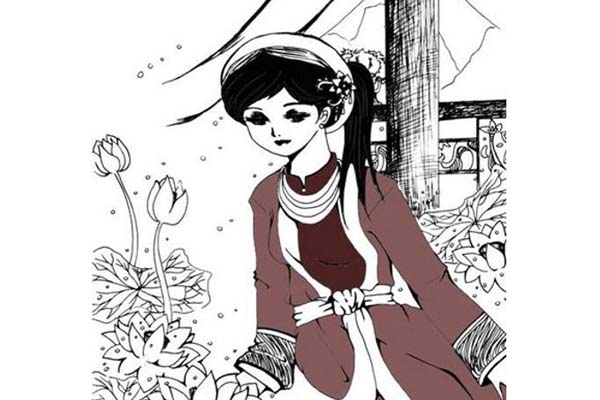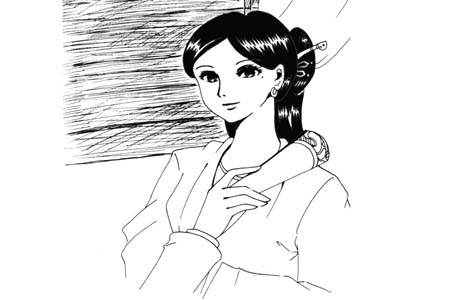By the heart of the XIXth century, the Nguyen Dynasty had restored the feudal regime at its most retrograde. The extortions demanded by mandarins caste in the Confucian mould, and by village notables sprung from the landowners' class, were multiplied at the dawn of the colonial conquest. Life was hard for the lower classes. Everywhere peasant rebellions exploded.
It is in this atmosphere that a woman of high aristocracy dared to compose poems about the common people's life.

A daughter of King Minh Mang, Hue Pho, was also known under pseudonyms, Tinh Hoa and Qui Khanh. She received’ a good literary education and created a female orchestra which she herself conducted.
She left a collection of poems, Hue Pho Thi Tap, from which this poem is taken:
Woodcutter's Song
In the emerald morning mist against the trees the flows resound,
Great boughs, little branches, the smallest twig fall to the axe
A singing voice carried by the wind rises up to the high white clouds,
At rest in the evening by the stream, he sharpens his axe on a stone,
At nightfall he returns, his shoulders bent under a heavy load of wood,
The path he travels beneath his feet is all thorns mand ravines
Steep, dangerous cliffs deep in mountains, are easily crossed
But what of the chasms on life's long and perilous path?



